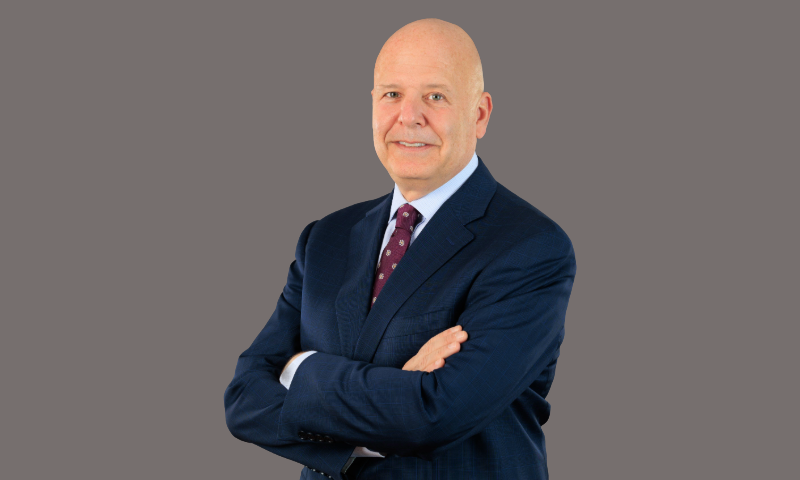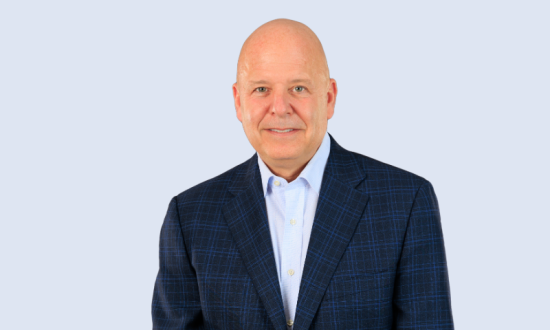Shep Hyken is a customer service/CX expert, award-winning keynote speaker, researcher, and New York Times bestselling business author. He works with clients who want to create an amazing experience for both customers and employees. His clients include Amazon, American Express, Aetna, Ace Hardware, AT&T, and Anheuser-Busch – and that’s just a few of the A’s! Learn more about Shep at www.Hyken.com
Recently, in an exclusive interview with CXO Magazine, Shep shared his professional trajectory, insights on the six key steps to creating a customer-focused culture and a customer loyalty mindset, personal hobbies and interests, future plans, words of wisdom, and much more. The following excerpts are taken from the interview.
Hi Shep. Tell us the story of how you got involved in customer experience. How did your career lead you here?
It all started when I was 12 years old. I started a birthday show magic business. After the first show, my mother told me to send a thank you note. My father told me to follow up a week later and ask how the parents liked the show. He said to ask specific questions that would help improve my show. Little did I know, this was showing customer appreciation, getting feedback, and process improvement. This was customer service and CX, and I didn’t realize it. So, that’s how I handled most of everything I did when it came to my business and the jobs I had in high school and college. When I graduated college, I saw a couple of motivational speakers and thought, “I could do that.” I had an entertainment background. All I needed was a topic to speak about. At the local bookstore, I was drawn to the customer service books, probably because that is what I’d been doing for the past ten years. The next day, I created a business plan, and here we are, decades later, and I’m still focused on helping companies (my clients) create the CX that gets customers to say, “I’ll be back.”
According to you, what are the 6 steps to creating a customer-focused culture and a customer loyalty mindset?
I developed a simple six-step process that companies of all sizes can use to create a customer-focused culture.
- Define the culture—This is a one-sentence CX vision statement. For example, the Ritz-Carlton uses “We’re ladies and gentlemen serving ladies and gentlemen.” Anyone who works there knows the vision and understands what it means.
- Communicate the vision – Constantly remind employees of the vision. This isn’t a theme of the year. This isn’t a theme of the year. This is permanent.
- Train everyone to the vision – CX isn’t just for the front line. Everyone must know their role in the customer’s experience.
- Leaders are role models – Leadership and management must be the examples of how to treat customers. It starts with how they treat employees.
- Alignment – It is the job of leadership and management to keep individuals, teams, and in larger companies, divisions and regions in alignment with the vision.
- Celebration – If the organization’s CX strategy is successful, let employees know. Celebrate success.
At the beginning of this answer, I mentioned this was a simple six-step process. Simple does not mean easy. It means it’s simple to understand. Implementation can be difficult, especially if organizations have tens of thousands of employees worldwide. Yet, follow the steps and take the time to implement.
You are a NYT Best-selling Business Author of 8 books, namely, Moments of Magic®, The Loyal Customer, The Cult of the Customer, The Amazement Revolution, Amaze Every Customer Every Time, Be Amazing or Go Home, The Convenience Revolution and I’ll Be Back. What does literary success mean to you?
While it’s nice to have a successful book (sales, bestseller lists, etc.), what gets me excited is when a company or individual uses my book to improve their customer service and experience and then shares their success stories with me. Knowing what I write makes a difference is one way I measure literary success.
Why do you think CX expectations have increased so much in this digital-first world?
Some companies do it better than others, and those companies are raising the bar regarding customer expectations. Customers don’t compare you to just your competition. They now compare you to the best service experience they have ever received. Those companies have educated our customers, and now they want (or at least hope) to get the same experience with any company they do business with. Unfortunately, it doesn’t always work out that way.
As a customer service and customer experience expert, what key performance indicators (KPIs) or metrics do you recommend organizations should track to gauge the effectiveness of their CX, EX, and UX initiatives?
I’m a fan of traditional metrics like CSAT (Customer Satisfaction) and NPS (Net Promotor Score). I also like to measure easiness and convenience. However, one of the most important measurements is repeat business. Measure the answer to this question: Does the customer come back? If so, how often? And one more very important question, why?

What does the term “authentic leadership” mean to you?
Leadership comes in all shapes and sizes. “Authentic leadership” can be a term used to define a leader with high values, including honesty, transparency, fairness, etc.; all the words you might use to describe someone with honesty and integrity, along with the ability and acumen to lead an organization.
If you could have a one-hour meeting with someone famous who is alive or dead, who would it be and why?
This may not be the answer you are expecting. Johnny Carson was my “idol” growing up. I did comedy magic through high school and college. I also performed my show at corporate events. I’ll never forget what he said about the term “show business.” It is two words. The secret to Johnny Carson’s success was his talent in two areas. He could do the show AND run the business (getting sponsors for the Tonight Show and more). As a teenager, I took this definition to heart. I built a “magic show business,” with an emphasis on the word business. As I started getting booked as a keynote speaker, a version of an entertainer, those words continued to ring true with me. The mantra I came up with was, “The job isn’t doing a keynote speech. It’s getting the speech.” I would love to spend time with Johnny Carson to learn about performance and business from the man who figured it out.
What are your passions outside of work?
I believe in enjoying life as much as possible. I have many hobbies and interests. Outside of what is truly most important to me – my wife and kids – I play music, practice magic tricks, compete in adult hockey leagues, play golf, bike ride, and more. I’m never bored.
Where do you see yourself in the next 5 years?
I continue to do my annual research and read hundreds of articles and dozens of books each year. I plan to stay on top of my game and continue to be relevant. Is retirement in the future? My definition of retirement is doing what I love, which means, other than some of the pesky paperwork I have to do, I’ve been retired since the beginning of my career!
What’s the one thing, if anything, you would wish everyone who is dealing with customers of today would be thinking about?
I’m going to finish with two answers, delivering more than expected. (HA! 😊)
- First is about creating customer loyalty. Many people think of loyalty as a lifetime, but let’s make it easier than that. Focus on the next time. When interacting with a customer, ask, “Is what I’m doing right now going to get the customer to come back the next time they need what we sell?” When you focus on the next time, every time, it can turn into a lifetime.
- Customer service and CX are not departments or strategies. They are a philosophy that must be part of an organization’s culture and embraced by everyone from the CEO or owner to the most recently hired employee.

